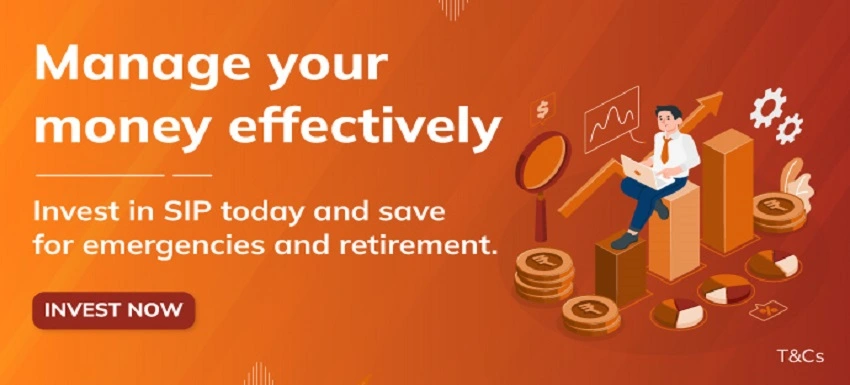THE
ORANGE
HUB
Mutual Fund Riskometer: Measure Risk in Mutual Fund Investment

Investing in Mutual Funds requires a detailed understanding of various factors and the Mutual Fund Riskometer is a vital tool to consider when making investment decisions. To embark on this journey, it is crucial to comprehend 6 key aspects that can significantly affect your financial journey. From understanding your risk tolerance to navigating market conditions, this guide provides critical considerations to empower investors in making informed choices. The Mutual Fund Riskometer serves as a compass, providing insights into the risks associated with different Mutual Fund categories. It also helps select an investment strategy that aligns with individual risk preferences.
6 crucial things to remember before investing in Mutual Funds
1. Understand Your Investment Goals
Before investing in Mutual Funds, clearly defining your investment objectives is important. You need to understand the purpose behind your investment, whether it is for retirement planning, funding your children's education, or buying a home in the future.
You need to identify your investment time horizon, whether short-term or long-term and assess your risk tolerance. This foundational step is crucial in selecting the most suitable Mutual Funds that align with your financial goals.
Considering the diverse nature of funds for different objectives, having clarity on your investment goals is the essential first step towards a well-informed and successful investment strategy.
2. Know Your Risk Tolerance
Every investor has a different risk tolerance, which refers to your comfort level with the possibility of your investment value fluctuating. Understanding your risk tolerance is crucial because it influences the types of Mutual Funds you should consider.
Here are three basic risk profiles:
Conservative: You prefer low-risk investments and are willing to accept lower potential returns
Moderate: You can tolerate some fluctuations in the value of your investments for the prospect of higher returns
Aggressive: You are comfortable with higher risk and are willing to accept significant fluctuations for the potential of substantial returns.
Knowing your risk tolerance will help you select Mutual Funds that match your comfort level and reduce the likelihood of making impulsive investment decisions.
3. Diversify Your Portfolio
Diversification is a fundamental principle in investing. It involves spreading your investments across various asset classes and Mutual Fund categories. The idea behind diversification is to reduce risk by not putting all your eggs in one basket.
When you diversify your portfolio, you spread the risk of poor performance in one investment across multiple investments. This can help mitigate the impact of market volatility on your overall portfolio.
To diversify effectively, consider investing in a mix of equity, debt and hybrid funds. What’s more, you can diversify within each category by choosing funds that invest in different sectors or industries.
4. Be Mindful of Costs and Fees
While Mutual Funds offer professional management and diversification, they also come with costs and fees. Understanding these expenses is essential, as they can affect your overall returns. Here are some key fees to be aware of:
Expense Ratio: This annual fee is expressed as a percentage of your investment. It covers the fund's operating expenses. Lower expense ratios are generally better for investors.
Exit Load: Some Mutual Funds charge a fee if you redeem your investment before a specified holding period. Be aware of exit loads and choose funds that align with your investment horizon.
Brokerage Fees: If you invest through a broker, they may charge a commission or brokerage fee. Understand the charges associated with your investment method.
Being mindful of costs and fees can help you maximise your returns over the long term. Look for funds with competitive expense ratios and consider direct plans, which often have lower fees than regular plans.
5. Research and Choose the Right Funds
Choosing the right Mutual Funds is a critical step in your investment journey. Here are some factors to consider:
Fund Performance: Evaluate the historical performance of the fund. While past performance does not indicate future results, it can provide insights into how the fund has fared in different market conditions.
Fund Manager: Research the fund manager's track record and experience. An experienced and skilled manager can make a significant difference in fund performance.
Fund Category: Select funds that align with your investment goals and risk tolerance. There are various categories of Mutual Funds, such as equity, debt and hybrid funds, each with unique characteristics.
Fund Size: Larger funds may have more resources and stability, but smaller funds can be more nimble. Consider your preference for fund size.
6. Financial Security and Freedom
Investing in Mutual Funds is not a set-and-forget endeavour. It is crucial to monitor your investments regularly and make adjustments when necessary.
Review your portfolio periodically to align with your goals and risk tolerance. Keep an eye on the performance of your funds and compare them to their benchmarks. Consider rebalancing your portfolio if it deviates significantly from your target asset allocation. By monitoring your investments, you can make informed decisions and stay on track with your financial objectives.
Conclusion
When investing in Mutual Funds, having a strategic approach is essential. The Mutual Fund Riskometer is an excellent tool to help you navigate this realm. To make informed investments, you must understand your risk tolerance investment horizon and identify funds that align with your goals. To optimise your returns, being vigilant about expense ratios, exit loads and tax implications is crucial. By considering these six key factors and using the Mutual Fund Riskometer, you can confidently invest in Mutual Funds and achieve your financial objectives. With the right knowledge and a thoughtful strategy, you can leverage Mutual Funds to create enduring wealth growth.
Scroll to top











